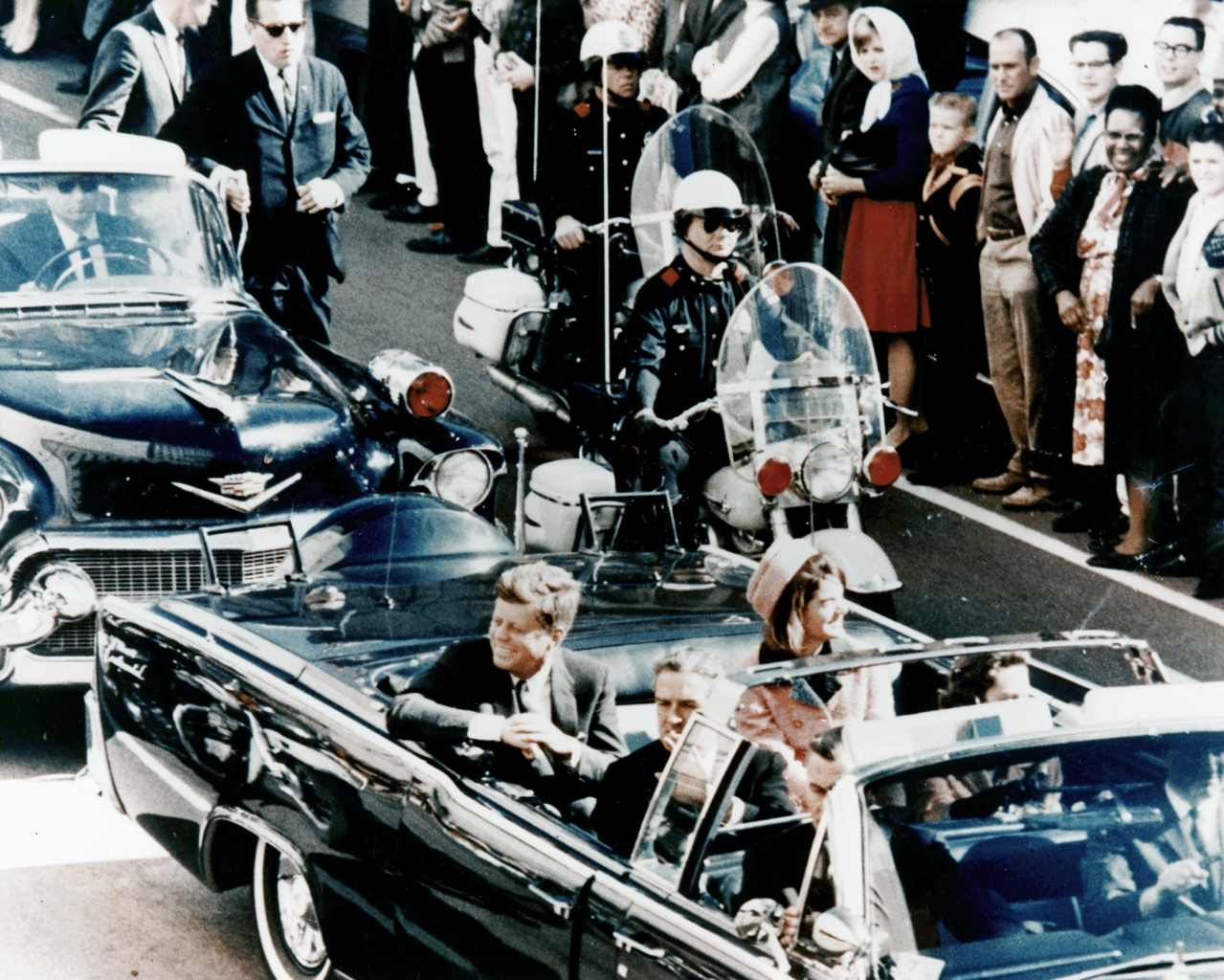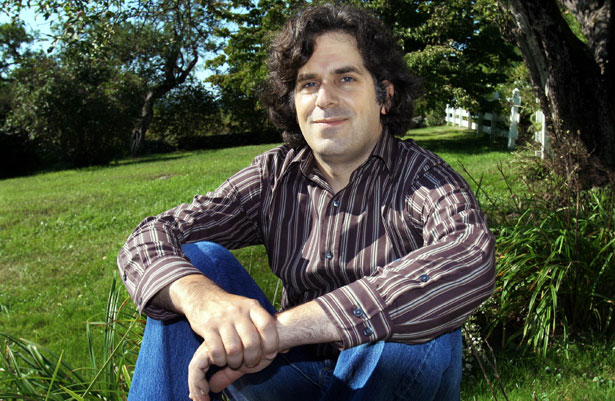
When Peter Matthiessen Was Silenced by his Publisher When Peter Matthiessen Was Silenced by his Publisher
How the cowardice of Viking Penguin kept the author’s In The Spirit of Crazy Horse out of print for seven years.
Apr 7, 2014 / Books & the Arts / Jon Wiener

Q&A With Edmund White Q&A With Edmund White
Edmund White, a member of the Stonewall generation, is the author of several award-winning memoirs and novels, including A Boy’s Own Story and City Boy. His new memoir is Inside a Pearl: My Years in Paris. This interview has been condensed and edited. Jon Wiener: A lot of what you’ve written celebrates “the golden age of promiscuity” in 1970s New York. That seems at odds with the gay marriage movement today. Edmund White: First, I was opposed to gay marriage because it seemed like one more way that gays were wanting to assimilate. When I realized the Christian right was so opposed to it, as well as tyrannical governments in Africa and Russia, I thought, “It must be a good thing to fight for.” Now I have a confession to make: I got married in November to my friend Michael Carroll, whom I’ve been with for nineteen years. At least we didn’t rush into it. When you arrived in France in 1983, was homosexuality a crime? No. Mitterrand had decriminalized it when he was elected in 1981. It was extraordinary. Suddenly the police were no longer allowed to raid gay bars or pick up gay people having sex in the park. Homosexuality in France has an interesting legal history. It was decriminalized by the French Revolution. Everything was fine until the Vichy government, which was in cahoots with the Nazis; they passed laws targeting homosexuals. It wasn’t until the Socialists won in 1981 that things changed again. When you left the United States in 1983, you were a famous gay writer. What did the French think about gay fiction? America thrives on identity politics, left and right. But France is opposed to the idea. Since the Revolution, the French have enthroned the idea of universalism. All of us must be equal before the law as abstract individuals, and that extends to the arts. Nobody in France would ever say “He’s a Jewish novelist” or “She’s a black novelist,” even though people do write about those subjects. It would look absurd to a French person to go into a bookstore and see a “Gay Studies” section. Even today. Michel Foucault died of AIDS in 1984—what had his understanding of AIDS been? I’d told him about it in 1981 when I was visiting, and he laughed at me and said, “This is some new piece of American Puritanism. You’ve dreamed up a disease that punishes only gays and blacks? Why don’t you throw in child molesters too?” The doctors were afraid to give him a diagnosis because he had written The Birth of the Clinic and other books that were critical of the medical profession. Was there a test for the AIDS virus in 1984? Not until ‘85. We didn’t even understand the viral nature of the disease. I found out in 1985 that I was positive, and I assumed I would be dead in two years. But I was what they called a “slow progresser.” Did your positive diagnosis galvanize you into writing more? That’s when you launched your gigantic Genet biography project. That was a kind of talismanic, magical, irrational act. I knew it would take years and years to complete, and it did in fact take seven years to write. If I had only two years left, I would never finish it. How did the Genet project go over with your friends back in New York? Larry Kramer, a wonderful fighter for gay people, felt that I was letting down my side by writing about something so far-fetched. But I didn’t just want to write about AIDS. I thought gays had been medicalized for a hundred years before Stonewall, and now we were in danger of being re-medicalized. Please support our journalism. Get a digital subscription for just $9.50! How is your health today? I had a stroke last year. This book I wrote mostly in the hospital. I couldn’t walk or talk, but I could still scribble. The French named you a Commander of the French Order of Arts and Letters—congratulations! Thank you. It’s a rank I share with Sylvester Stallone. Read Next: Stuart Klawans on How to Survive a Plague, the documentary on ACT UP and the early years of the AIDS epidemic
Mar 27, 2014 / Jon Wiener

The Talibanization of Hindu History in India The Talibanization of Hindu History in India
Penguin’s withdrawing and pulping The Hindus: An Alternative History is only the latest in a series of surrenders.
Feb 14, 2014 / Books & the Arts / Jon Wiener

7 Questions for Rachel Kushner 7 Questions for Rachel Kushner
The author of The Flamethrowers weighs in on literary inspiration, motorcycle crashes and why radicals prefer hardcover.
Feb 12, 2014 / Jon Wiener

Pete Seeger’s Biggest Day Pete Seeger’s Biggest Day
In a life of memorable moments, one of the most important was the day Seeger sang “Give Peace a Chance” with half a million people.
Jan 28, 2014 / Books & the Arts / Jon Wiener

Q&A: Gary Shteyngart Q&A: Gary Shteyngart
Gary Shteyngart wrote the award-winning novels The Russian Debutante’s Handbook, Absurdistan and Super Sad True Love Story. Now he's written a memoir called Little Failure. This interview has been edited and condensed. JW: You spent your first seven years in the Soviet Union—what was your 7-year-old understanding of communism, of Lenin himself? GS: Let’s start with Lenin. One of the biggest statues of Lenin was in Leningrad right outside our window. I loved Lenin so much that I would wake up every morning and hug his pedestal. When I was 5, I wrote a book called Lenin and His Magical Goose, in which Lenin and a talking goose conquer Finland and make it a socialist country. I very much wanted to become a soldier in the Red Army, or a cosmonaut. I wanted to try to launch an attack against the United States and make it safe for socialism. JW: You and your family left Russia in 1979. How did you get to leave? GS: Jimmy Carter and Leonid Brezhnev created a Jews-for-grain deal. American Jews were agitating for Soviet Jews to be able to leave Russia, and at the same time the Soviet Union had a horrible wheat harvest. So grain sailed out of America and Jews sailed out of Russia. I was worth 300 loaves of bread or something. JW: There’s a turning point in your book, when your father tells you as you are leaving, “Everything was a lie.” What did you think about that? GS: I was heartbroken. That’s a tough sell for a kid: goodbye Lenin, hello Reagan. JW: What surprised you about the US when you arrived? GS: Everything surprised me. There was nothing that was recognizable. When we landed at Pan Am terminal at JFK, it looked like a flying saucer. I saw a Chevrolet Corvette; I thought it was a plane, ready to take off. JW: Your father sent you to Hebrew school in Queens. Were you welcomed by the other Jewish kids as a refugee from an anti-Semitic country? GS: Remember, these were the days of Reagan’s “Evil Empire” speech. The kids had seen all those movies—Red Dawn and Red Gerbil and Red Hamster—and being Russian was the worst thing you could be. I tried to convince them I was born in East Berlin. When you’re trying to convince Jewish kids that you’re German, you know you’re in deep trouble. JW: I understand you got a subscription to National Review when you were 11. How did that happen? GS: That’s so embarrassing. I remember Margaret Thatcher was always on the cover. Also at age 11 a card came in the mail with my name on it, along with an eagle and two rifles. It was my membership card in the National Rifle Association. JW: What was your path away from loving Ronald Reagan and reading National Review? GS: I volunteered for the George H.W. Bush campaign, and there was a victory party at the Marriott in Times Square. I walked in wearing my one polyester suit, feeling I was finally going to meet the girl of my dreams. I saw two Republican girls wearing the pearls and stuff, and they asked me to come over. I thought, this is it! And they asked me for a rum and Coke. They thought I was a waiter. I realized that this dark-skinned immigrant in the polyester suit is probably not GOP material. Please support our journalism. Get a digital subscription for just $9.50! JW: Your parents loved America, but they were always afraid they would lose their jobs. Did it ever occur to them that the problem might be with America and not with them? GS: No. America for them was and is a country that can do no wrong. They are still very Republican, and they love Fox News. I sort of understand their point of view, because it was forged in opposition to the system in which they grew up. JW: You’ve lived in the US since you were 7—for the last 34 years. Is Russia still part of your life? GS: It is. I’ve returned to Russia almost every year for the last fifteen years. It’s important for my writing. It’s important for my understanding of who my parents are and, by extension, who I am. Every trip back begins with a visit to that Lenin statue. Read Next: Aaron Thier on Super Sad True Love Story.
Jan 22, 2014 / Books & the Arts / Jon Wiener

Dick Cheney in Nixonland Dick Cheney in Nixonland
A festive night of Obamacare-bashing.
Dec 19, 2013 / Jon Wiener

Five Best Kennedy Assassination Books Five Best Kennedy Assassination Books
DeLillo and Mailer, Caro and Bugiolsi—and Stephen King.
Nov 12, 2013 / Jon Wiener

Was Your Grandmother a Communist?—and Five More Questions for Jonathan Lethem Was Your Grandmother a Communist?—and Five More Questions for Jonathan Lethem
Lethem’s new novel, Dissident Gardens, involves three generations of left-wing activists in New York City.
Oct 9, 2013 / Books & the Arts / Jon Wiener
Hollywood, Hitler and Harvard Hollywood, Hitler and Harvard
A leading critic has called on a leading publisher to withdraw and reissue a new book.
Sep 30, 2013 / Jon Wiener

